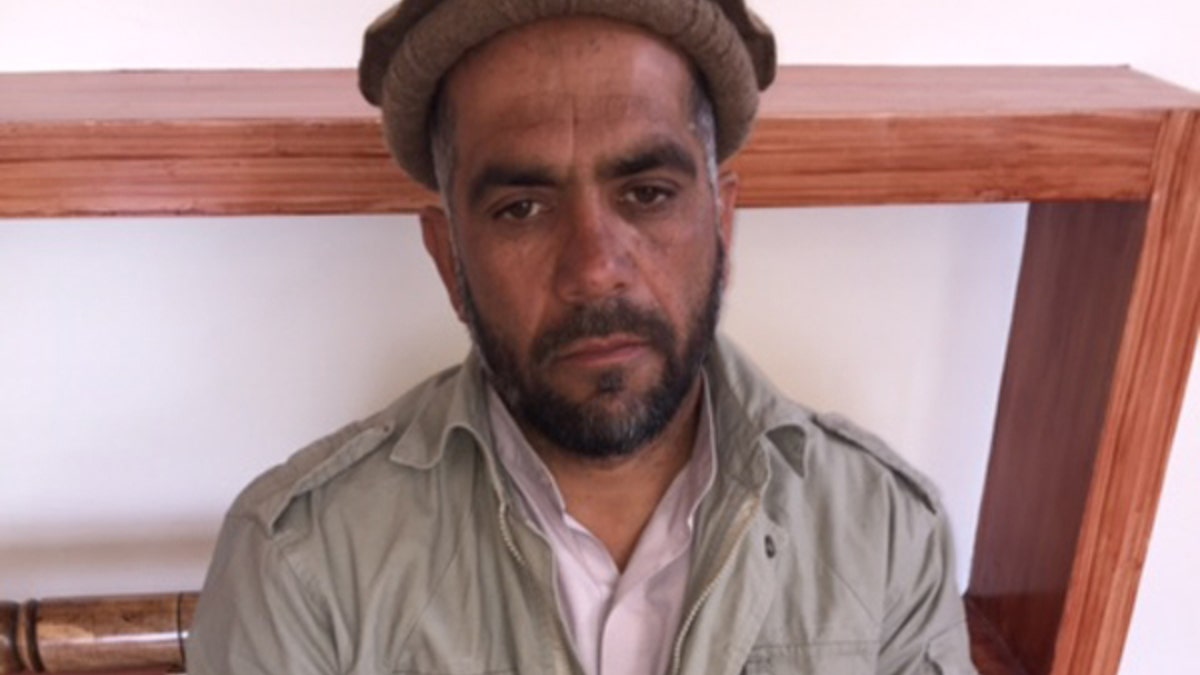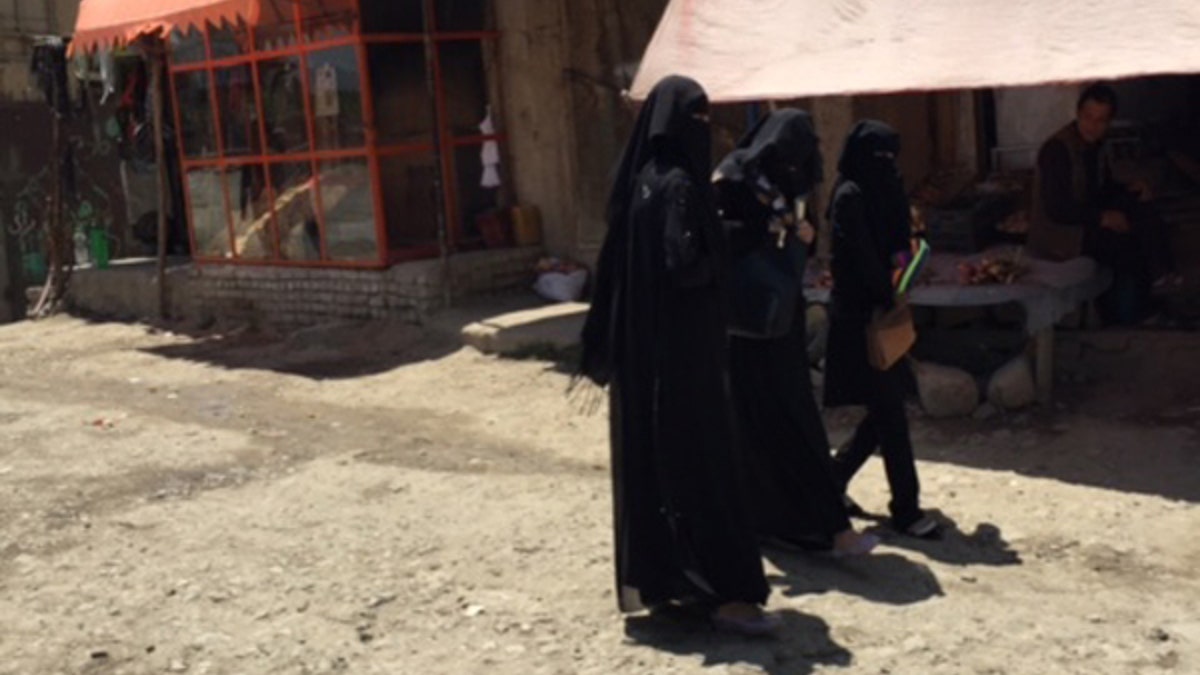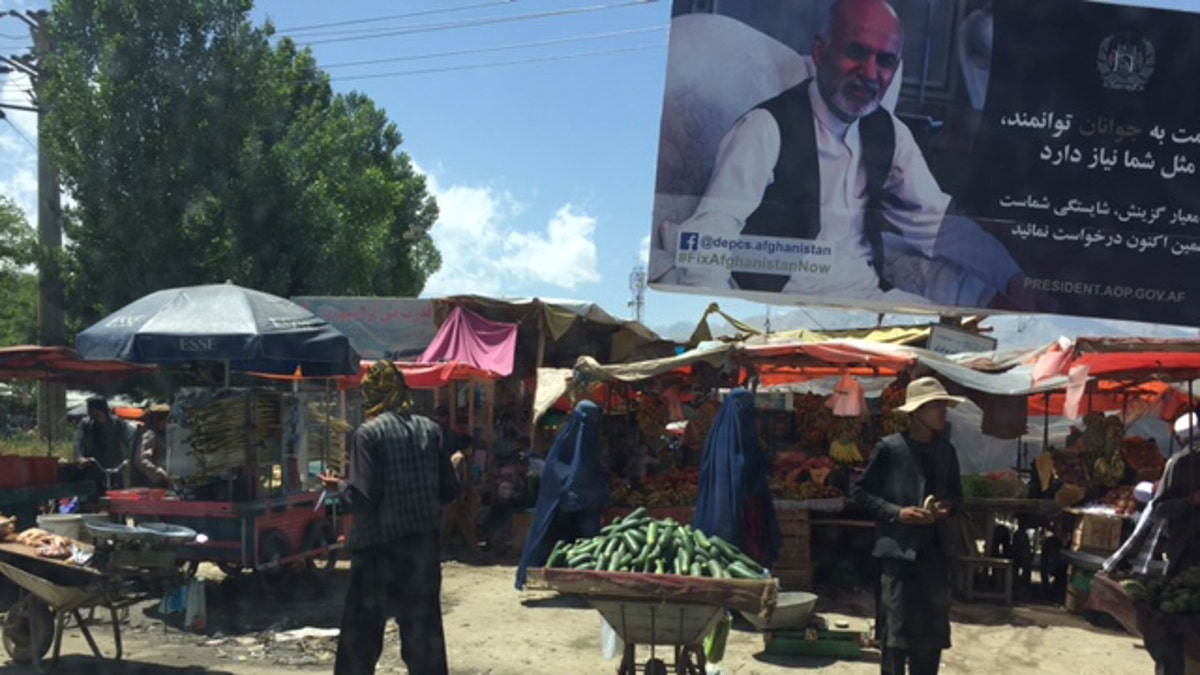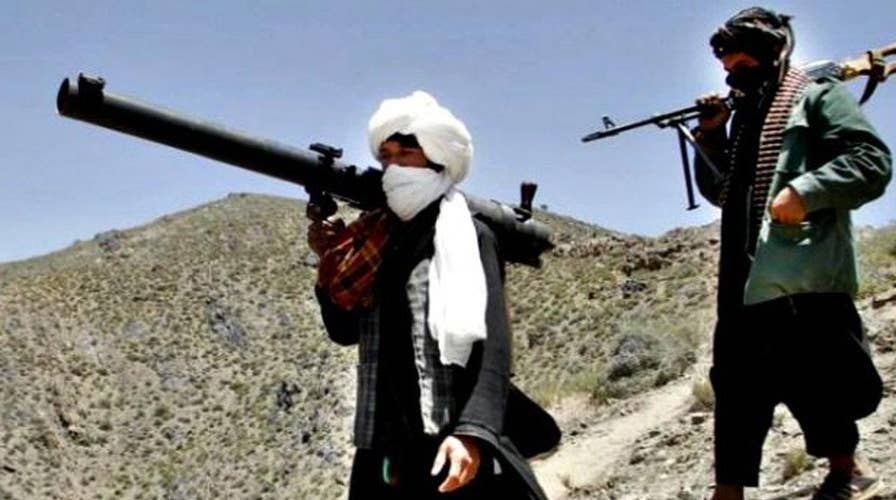New plan to fight Taliban in Afghanistan sparks debate
Sgt. Johnny Joey Jones provides insight
KABUL, Afghanistan – Weaving through the clogged streets of Kabul, only half are paved. The rest are tracks in the hardened dirt. Unfinished buildings tower over the endless raw meat stands, barefoot men huddle in a gutter sharing tea while poor women beg from behind their burkas and children swarm car windows pleading for spare change.
There is an unspoken sense that anything, at any time, can go wrong.
"There is no safe place to go anymore. When a person comes out of their house, you cannot assume that he or she will come home," Mohammad Sayed Rahimi, founder of private security firm Kabul Balkh Safety & Security, told Fox News. "The situation now is as fearful as it was under the Taliban rule of the '90s."
The Special Inspector General for Afghanistan Reconstruction (SIGAR) reported last week that armed clashes and security incidents nationwide have reached "new heights" and caused an uptick in civilian deaths. The security incidents throughout last year and the first quarter of this year are also at their highest level since United Nations documentation began in 2007.
President Trump is considering a proposed Pentagon plan for the embattled country, which -- if implemented -- is likely to entail the deployment of at least 3,000 more American military personnel.
"More U.S. troops would be much better for the security of the country, but the U.S. needs to have a clear, long-term strategy toward Afghanistan," said Gen. Jawid Kohistani, a former official at Afghanistan's National Directorate of Security (NDS) and leading security analyst. "So far, it has all been temporary. And that isn't working."

Essa Attei (Hollie McKay/Fox News)
The quick U.S. ousting of the radical Islamic fundamentalist Taliban regime in 2001 and the ensuing almost 16-year peace in their country doesn't go unappreciated by most Afghans, who view America and NATO as loyal partners in their fight against terrorism.
"We welcome more troops; NATO has been our best friend," said Essa Attei, a driver for the late President Burhanuddin Rabbani, who reigned from 1992 to 1996 before the Taliban took over.
Abdul Khaliq Kandahari, the former governor of the Arghandab district of Kandahar province and current adviser to Dr. Abdullah Abdullah -- the chief executive of Afghanistan -- survived an assassination attempt in 2014, eight bullets tearing into his stomach. He credits the U.S. for saving his life with emergency surgery at Bagram Air Base.
"The U.S. has supported us since we fought against the Soviet invaders, and after 2001, and we are very grateful," he enthused. "Without American support, we cannot yet stand on our own legs. This takes time. Security and infrastructure is most important."
The decades of conflict, invasion and extremist rule led the Afghan people to live defensively, but they do not accept constant conflict as normal -- knowing all too well that a better life is not impossible.
"We are at war," Col. Abdul Sami, who works in Kabul securing depots and storage facilities for the Ministry of Defense, said. "We don't have any problems in this country -- but this."

Women at an outdoor market in Kabul (Hollie McKay/Fox News)
For some, a continued or even expanded American presence could prove either friendly or fatal for their country. Today's deteriorating security situation also has created a deep skepticism as to what the true motives of the United States might be.
"The main purpose of America coming in was to defeat terrorism, and now it is not only worse but multiplying," one high-ranking political official lamented. "So is the plan just to use our country as a testing ground for bombs?"
Last month's dropping of a MOAB bomb might have killed some terrorists, but it also meant bombing their country again. When locals see a Western face, they often ask why America provides massive sums of aid and military funding to Pakistan to fight terrorism, yet that neighboring nation is seen as the No. 1 source of cross-border terrorism in Afghanistan. In fact, the Afghanistan-Pakistan region has the highest concentration of terrorist groups in the world. Pakistan provides a safe haven and even passports for many of those terrorists, including the Taliban, yet the U.S. government provides funding to Pakistan. Afghans frequently ask, how does this make sense to America?
Overall, an increased U.S. involvement is generally desired by the Afghan people, if only to provide a security blanket. Most also acknowledge that it is only something of a “Band-Aid slapped on a bullet wound.” More of the same, and a military approach alone, won't bring them long-term peace.

An outdoor market in Kabul (Hollie McKay/Fox News)
And the sword is double-edged: The increased strength of the insurgency has forced the Afghan government to spend more on defense and less on infrastructure, education and quality-of-life initiatives for its people.
Furthermore, Afghans across the board are fed up with the corruption that has plagued their government and their military since the U.S. invasion in 2001. Even U.S. military officials have stated that, as published in SIGAR’s April 30, 2017, Quarterly Report to Congress, corruption remains the No. 1 obstacle to Afghan armed forces development. And yet, the U.S. continues to dedicate more than 60 percent of its on-budget assistance for Afghanistan to Afghan military needs -- even though the troops themselves seem not to be reaping the benefits of those billions of dollars.
The shockingly high casualty rate of Afghan government forces -- estimated to be around 100 a day -- is largely attributed to the perception that commanding officer ranks are awarded not on performance, but on family connections and bribes. Moreover, the average soldier earns less than $50 a week -- barely enough to feed himself, let alone a family. This has led to high defection rates and poor morale. Who wants to fight for a country where only elite and tribally-affiliated pockets are lined?
"The people who fight for us don't get good clothes, good food or even enough ammo," Rahimi said. "Sending thousands more U.S. troops isn't going to make the security situation better. The corruption problem must be solved first."
However, others insist that there are many reasons to be optimistic about the future of Afghanistan. Many say that the country is on the right trajectory as it is, and that the passage of time will stamp out government corruption and tribal contentions, and bring with it stability and prosperity. But an American stake in the game is vital.

Marshal Azizi at an outdoor shop (Hollie McKay/Fox News)
Marshal Azizi, who just turned 17, has spent almost his entire life under U.S. military protection and fears anything different.
"It will be a big threat for us if America leaves completely," he said. "I want to go to university and then join the Army and fight for my country. And fight alongside America."
According to Afghan businessman Saed Ismail Amiri, there are many elements bringing instability to Afghanistan. But the upcoming generation has a far more open-minded, fiscally-savvy view of their country that will soon overtake the age-old tribal and ethnic hostilities that have held Afghanistan back from progress.
"We see hope. The number of educated people is increasing, young people are on social media, change has started to happen. But we still need support," Amiri said. "We need America to not leave us alone. This country will collapse in 30 days if you do."
And, he stressed, should America choose to drawdown – the best thing is to keep that part of the foreign policy quiet.
"That was the biggest mistake Obama made, giving a departure date to the Taliban," Amiri added. "They just waited and now they are controlling 40 percent of the country."








































